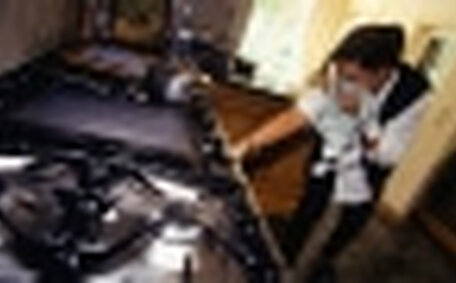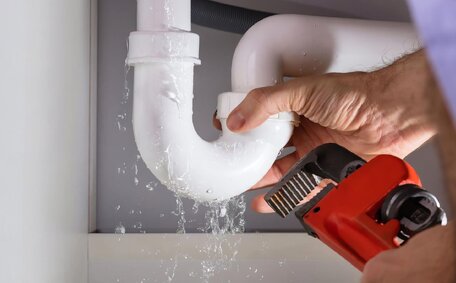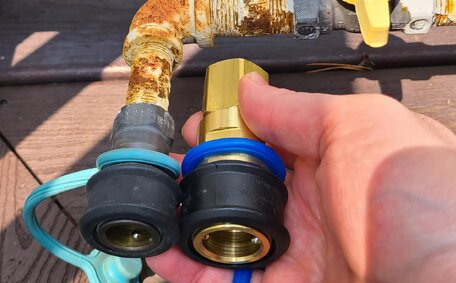Introduction: Why Hot Water System Efficiency Matters
An efficient hot water system is key to lowering your energy bills. It impacts your daily comfort, your energy bills, and the environment. Upgrading to a higher efficiency system or adjusting your existing one can significantly contribute to energy saving while reducing your bills.
With rising energy prices, an inefficient hot water system can become quite expensive to operate. Older water heating units that aren’t properly set tend to lose a lot of heated water, which results in an increase in energy consumption. Enhancing insulation, optimising settings, and maintaining your water heater boost efficiency and reduce energy costs.
Furthermore, a system with greater energy efficiency will perform better and last longer.
Simple modifications like fitting heat traps curtail heat loss via pipes, securing savings on your hot water expenses. Adjusting the thermostat to 60°C can lead to significant energy savings while providing ample hot water for your needs without risking overheating. We recommend draining your tank annually, which can help remove sediment buildup that hampers efficiency.
As your local licensed plumber since 1998, Gladesville Plumbing is here to help you identify issues with your system and suggest tailored solutions to drive efficiency.
Checking Your Hot Water System’s Insulation
Proper insulation is essential to maximise your hot water tank’s efficiency. Check your storage tank and pipes to prevent heat loss from an exposed or poorly insulated system, leading to energy waste and higher bills. Checking your insulation should be part of any hot water troubleshooting or maintenance routine.
Start by inspecting your storage water heater tank. Ensure the insulation fully encompasses the sides and top of the tank.
Examine the water piping leading to and from the tank. Make sure insulation extends along the entirety of your heater’s hot water pipes; detailed instructions are provided further below. Examine the water piping leading to and from the tank. See the section below on how to properly inspect for and mend insulation gaps at joints and bends.
If existing insulation is inadequate, contact your Gladesville Plumbing to install high-grade materials tailored to your system. Upgrading insulation recovers heat far more effectively, delivering hot water faster while lowering energy consumption.
Ensuring Proper Thermostat Temperatures
An optimal water heater temperature setting ensures maximum efficiency while maintaining adequate hot water temperature. For many households, setting the water temperature to 60°C balances energy conservation and bacterial safety; confirm this setting’s suitability for your needs.
Start by locating your electric water system’s thermostat, where hot water temperature regulation is necessary, typically located on the front of storage tanks or adjacent to the control knob. Refer to the manufacturer guidelines for verification. Gently adjust hot water dial while checking the digital screen to identify the current setting.
The heater set mechanism will automatically cycle the heating elements on and off to reach and maintain the new level.
Avoid setting the thermostat above 75°C to prevent unnecessary energy waste, disrupted flow, and scalding risks. Temperatures below 50°C enable dangerous growth of Legionella bacteria. 60°C is ideal as it hinders the growth of Legionella while hitting the safety and efficiency sweet spot for household systems.
An accurate, properly set thermostat regulates heating water cycles. This prevents energy waste from overheating while still delivering enough hot water as a properly functioning hot water heater can provide. Contact Gladesville Plumbing for professional advice if you have any issues verifying or adjusting your gas hot water system’s thermostat.
Installing Heat Traps and Anti-Convection Valves
Heat traps and anti-convection valves are vital for conserving heat within your hot water system, enhancing efficiency.
Heat traps are simple, low-cost devices that can effectively reset your water heater’s heat retention capabilities, installed on the lines leading to and from the tank. Heat traps retain a portion of the heated water in the tank, preventing convection and the resultant heat loss via the pipes.
This ensures that the hot water delivered by your system maintains its comforting warmth within your home. Similarly, cold water heat traps prevent warmer household water entering the tank and wasting energy.
Anti-convection valves serve a similar function when installed on multiple hot water outlets, trapping pockets of water to block convection currents. They are particularly effective for vertical pipes.
Installing these valves and traps involves connecting them to the appropriate inlet and outlet pipes following manufacturer guidelines. They can be fitted outside or within wall cavities. Ensure you leave sufficient room for access and future maintenance.
With heat traps and anti-convection valves fitted, convection loss is minimised, ensuring temperature in your hot water stays optimal and more heat generated stays within the system for use. Contact our Gladesville plumbing team if you require installation or have any other questions about optimising your hot water efficiency.
Draining Sediment Buildup
Over time, sediment builds up at the bottom of hot water heaters, reducing their efficiency. Hard water areas like Gladesville lead to greater accumulation. Draining this sediment yearly optimises performance.
Start by turning off the circuit breaker and confirming the closure of the gas line to your hot water system. Connect a garden hose to the tank’s drain valve at the base, directing the water safely to an appropriate area. Carefully open the valve and lead the hose outdoors, allowing the discharged water to carry away sediment.
Drain until the water clears, ensuring the removal of all particles.
Make sure to close the drain valve and replenish the tank by activating the water supply through the cold water inlet valve. Restore the gas supply and power once full. Monitor temperature settings and heating functionality for 10-15 minutes to ensure proper operation before use.
Yearly draining diminishes costs by eliminating mineral deposits that interfere with heat transfer and efficiency; For additional support, or if you need relighting see the pilot light instructions, please look at the section below on how to proceed, or contact Gladesville Plumbing for assistance. If facing other issues, such as running out hot water or needing to check and relight the pilot light, contact Gladesville Plumbing to inspect and service your hot water system.
Implementing Water-Saving Fixtures
Water-efficient fittings such as low-flow taps and contemporary showerheads can easily reduce hot water usage, slashing energy bills.
Low-flow showerheads, easily fitted in your shower, decrease water use to 9 litres per minute without sacrificing water pressure. Pairing these with a water-efficient tap aerator can reduce your energy bill by conserving a significant amount water, up to 22,000 litres per person each year.
For a family of 4, you can save over $200 annually on your budget, which equates to appreciable savings. Low-flow fixtures also cut utility bills by reducing water consumption.
Contact Gladesville Plumbing to install water-saving showerheads and tap aerators suited to your household’s needs. Investing in efficiency measures like these can pay for themselves in under a year through ongoing savings.
Following Manufacturer Maintenance Guidelines
Adhering to your hot water system manufacturer’s maintenance guidelines is vital for optimal performance and longevity. We recommend scheduling a tune-up by a licensed plumber professional every 2 years to keep your system running efficiently.
During upkeep, specialists assess components like heating elements, anodes, control valves, and pilot lights for wear and corrosion. They also remove sediment, fine-tune controls, test the pressure relief valve, check for leaks, and confirm accurate temperature settings.
Preventative maintenance enhances safety, averts breakdowns and extends your hot water system’s lifespan by up to 5 years. Addressing minor issues promptly can help you avoid costly emergency repairs later.
Following the manufacturer service schedule also ensures your system meets warranty requirements. Upgrading to a newer model every 8-12 years improves energy efficiency as technology advances.
Contact Gladesville Plumbing today to book your biennial tune-up for hot water systems with a local licensed plumber professional. Investing in regular maintenance optimises your hot water system’s performance, efficiency and longevity, saving on energy bills for years to come.
Monitoring Efficiency and Troubleshooting Issues
Inefficiency in gas storage hot water systems is often evident through rising energy bills, despite lower hot water use. Insufficient or inconsistent hot water temperature often indicates potential issues, especially during peak usage times.
Start by verifying your thermostat is correctly set to 60 degrees Celsius. See the subsequent instructions on checking and reigniting pilot lights and adjusting temperature settings. An inaccurate reading leads to energy waste from overheating or comfort issues if temperatures are too low.
Check whether you have installed heat traps and anti-convection valves as outlined previously. Faulty or missing valves enable heat loss through the pipes, hampering efficiency.
Inspect your insulation carefully, and for how check relight any pilot lights, ensuring all surfaces and joints are adequately covered. Patch up any tears or gaps allowing heat to escape. Top up insulation if required.
Consider adding low-flow showerheads and tap aerators if your household’s water volume more than a full amount is high. Reduced water volume more than a full amount significantly lowers energy demands.
Draining any sediment buildup can also optimise performance. For a step-by-step guide to safely draining your system, refer to the instructions below.
Calling a Professional Plumber When Needed
At times, a still no hot water call may require professional assistance. We recommend you don’t do attempt DIY repairs and instead contact a licensed plumber if you experience persistent problems despite troubleshooting efforts.
Warning signs like complete hot water failure, which can cause leaking tanks or pipes, strange sounds, faulty electrical connections or gas smells indicate an urgent need for servicing. Continued usage risks injury or extensive property damage.
As your trusted local licensed plumber experts since 1998, Gladesville Plumbing is here to offer plumber professional advice. Our qualified, fully-licenced technicians can do a variety of services including:
- Emergency plumbing and hot water repairs 24/7
- In-depth troubleshooting and efficiency optimisation
- Gas, electric and solar hot water system installations
- Professional maintenance checks and tune-ups
- Latest high-efficiency system upgrades
Drawing on our wide-ranging experience in Gladesville, we tackle all jobs, from gas and electric to heat pump systems, regardless of size. Our priority is delivering reliable, quality outcomes to keep your home comfortable.
For professional assistance to enhance your system’s efficiency, don’t hesitate to reach out to us. Call us today on 1300 349 338 or email jobs@gladesvilleplumbingservice.com.au.






